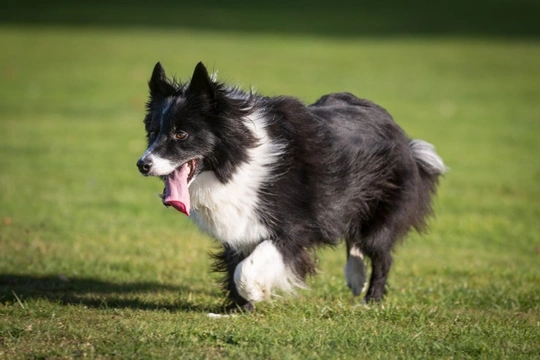
All about the pastoral dog group
The pastoral dog grouping is one of the seven Kennel Club umbrella classifications used to divide breeds and types of dogs into subsections for judging purposes.
In more general terms, the phrase ‘pastoral dogs’ describes dogs whose current or original purpose was use in the management of livestock, such as mustering, guarding and herding. Dogs of this type are further divided into three subsections- herding dogs, which work under the direction of a handler; drovers, used to drive animals over a large area of terrain; and guardian dogs, which would live with a herd and protect them from predators such as foxes and wolves.
The UK Kennel Club’s definition of a pastoral dog is “One that is used for working cattle, sheep, reindeer or other cloven footed animals.” This includes both stock guarding dogs and herding or droving dogs.
What’s in the group?
There are thirty three dog breeds which compose the UK Kennel Club pastoral breed grouping. The full list consists of:
- Anatolian Shepherd Dog
- Australian Shepherd
- Australian Cattle Dog
- Bearded Collie
- Belgian Shepherd Dog (Groenendael)
- Belgian Shepherd Dog (Laekenois)
- Belgian Shepherd Dog (Malinois)
- Belgian Shepherd Dog (Tervueren)
- Bergamasco
- Border Collie
- Briard
- Catalan Sheepdog
- Collie (Rough)
- Collie (Smooth)
- Estrela Mountain Dog(Cão da Serra da Estrela)
- Finnish Lapphund
- German Shepherd Dog(Alsatian)
- Hungarian Kuvasz
- Hungarian Puli
- Komondor
- Lancashire Heeler
- Maremma Sheepdog
- Norwegian Buhund
- Old English Sheepdog
- Polish Lowland Sheepdog
- Pyrenean Mountain Dog
- Pyrenean Shepherd
- Samoyed
- Shetland Sheepdog
- Swedish Lapphund
- Swedish Vallhund
- Welsh Corgi (Cardigan)
- Welsh Corgi (Pembroke)
Pastoral working dogs
Dogs which are included on the list of pastoral working dogs are those dogs which are still widely or commonly used as popular stock working dogs today. Dogs which were historically used for stock working purposes but which have subsequently been bred out or are no longer widely used are not included upon the list; these dogs are generally classified as utility dogs, or dogs which do not fit into any other classification, including ex working breeds.
While a great many of the dogs on the above list are also kept as domestic pets and many such dogs kept in the UK may never have been trained or used for working purposes for many generations, the herding and shepherding instinct is still strong within them and they are still considered to have the genetic predisposition for herding and stock management work.
Anyone who has ever owned or played with a collie will be more than familiar with this genetic predisposition, as collies will often take it upon themselves to ‘herd’ smaller members of the family, their own pack or even farm animals they come upon when out walking- something which the collie owner must be prepared for and able to train the dog out of! Their signature low, sweeping stride and quick, nippy movements soon becomes evident when playing ball, and collies and other herding dogs are widely considered to be a good breed of dog to use for agility, flyball and other canine sports as a result.
Historical usage of pastoral dogs
Pastoral dog breeds hail from all over the world, with every country that has a strong history of agricultural production and keeping herd animals having their own representations of the pastoral dog type. While herding dogs are still very much utilised today within the UK, watchdogs and guard dogs for stock protection have become less common, as farming methods have changed over the generations.
Historically within the UK and as is still the case in many other parts of the world today, farmers and shepherds would have to travel long distances with their flocks to find suitable grazing land to account for the herd’s feeding requirements. Shepherds and farmers would often live a nomadic lifestyle, travelling away from home and living outdoors or in basics portable shelters for weeks at a time supervising their flocks.
On unfenced wild and common land, there is often a strong presence of natural predators, with herd animals such as sheep, goats and deer making easy pickings for the wily fox or wolf. As well as herding tasks, the different pastoral dog breeds have also become renowned for their stock guarding and deterrent abilities, seeing off predators that can decimate a flock within a few hours or days if left unchecked. The watchdog or pastoral herd guarding dog would stand guard over the flock alongside of the shepherd or while the shepherd sleeps, and would perform the dual purpose of alerting the shepherd to the first signs of a predator by barking and making a commotion, and frightening the predator away or even fighting to defend the animals in the flock.
The terms ‘pastoral group’ and ‘herding group’ are often used interchangeably when referring to stock working dogs of any type.



